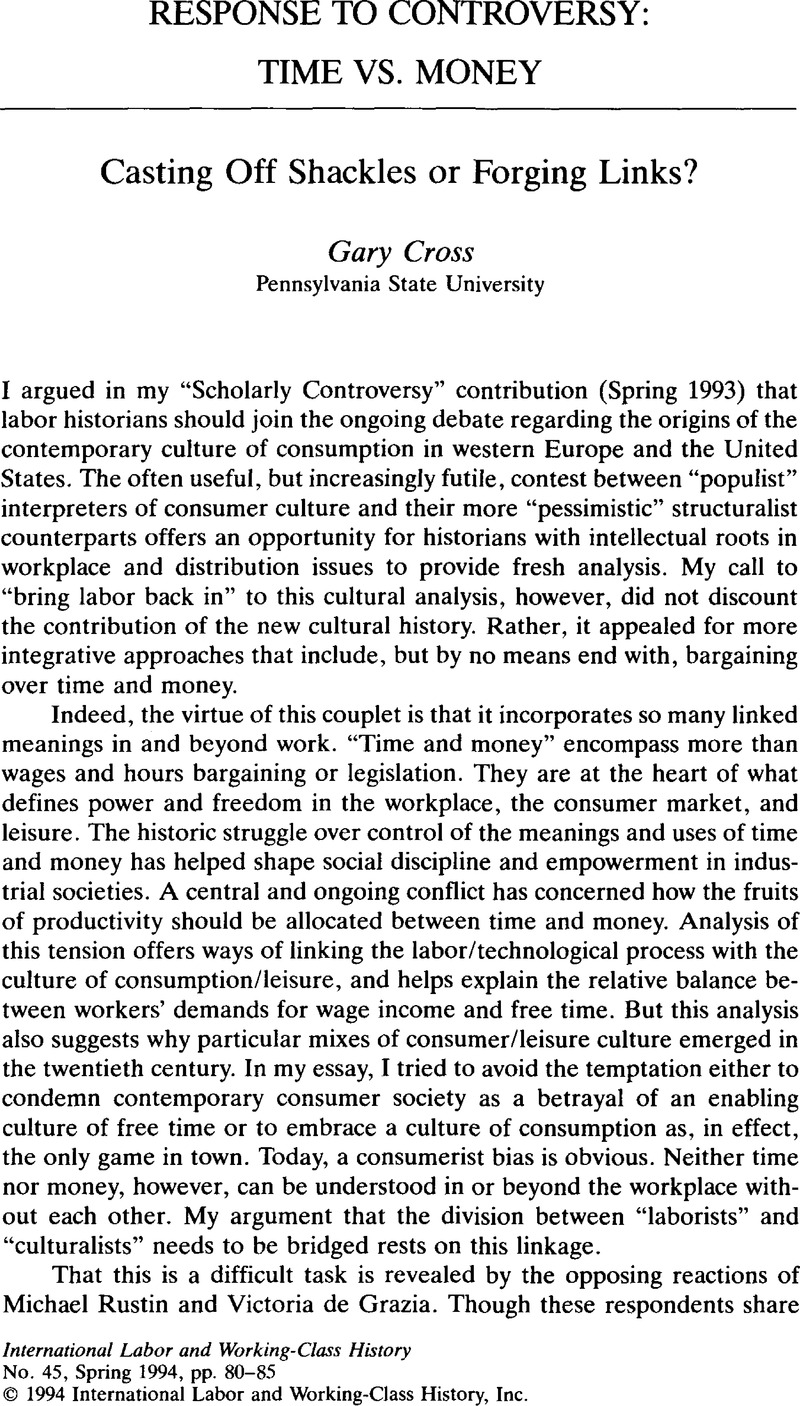No CrossRef data available.
Published online by Cambridge University Press: 16 December 2008

1. Ross, Andre, No Respect: Intellectuals and Popular Culture (London, 1989)Google Scholar, esp. chs.1, 2,4.
2. Hunnicutt, Benjamin, Work Without End: Abandoning Shorter Hours for the Right to Work (Philadelphia, 1988), ch. 1;Google ScholarSchor, Juliet, The Overworked American: The Unexpected Decline of Leisure (New York, 1991), chs. 2, 4;Google ScholarOwen, John, The Price of Leisure: An Economic Analysis of the Demand for Leisure Time (Rotterdam, 1969), chs. 1, 2;Google Scholar and Cross, Gary, Quest for Time: Reduction of Work in Britain and France, 1840–1940 (Berkeley, 1989), appendix.Google Scholar
3. Cross, Gary, Time and Money: The Making of Consumer Culture (Routledge, 1993), chs. 5, 8.Google Scholar
4. Venturi, Robert, Scott-Brown, D., and Izenour, S., Learning from Las Vegas (Cambridge, Mass., 1972).Google Scholar
5. de Grazia, Victoria, “La politique sociale du loiser: 1900–1940,” Les cahiers de la recherche archirecturale 15–17 (1985): 24–35.Google Scholar
6. Schor, Overworked American, esp. ch. 5.